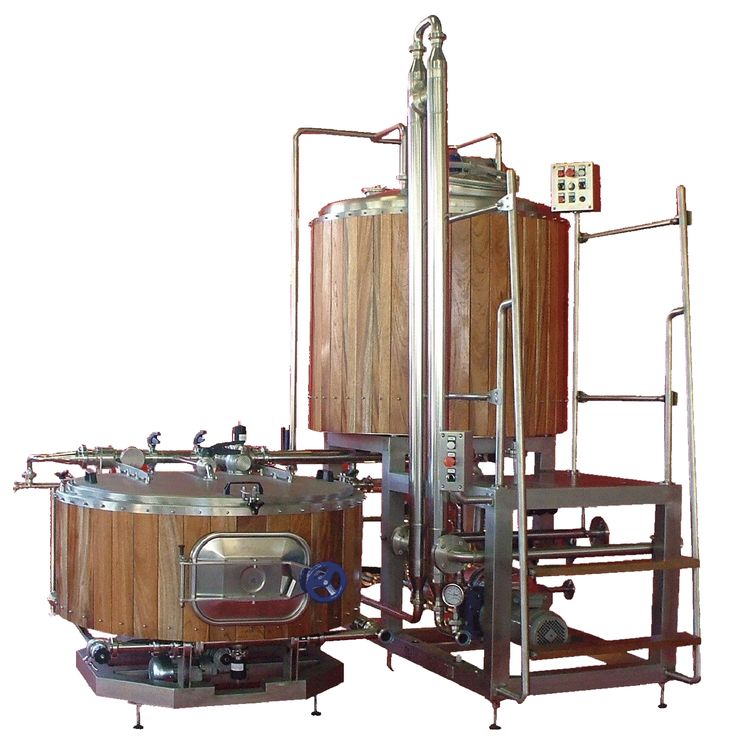Key Takeaways:
- Determine whether live or online auctions suit you better.
- Thorough market research helps you avoid overpaying or buying faulty equipment.
- If inspecting equipment in person is not possible, detailed inspection reports help.
- Settling a clear budget prevents emotional bidding and overspending.
- Bid strategically by understanding the auction format and observing successful bidders.
Nowadays, participating in equipment auctions is one of the most popular ways of acquiring the necessary equipment.
After all, good equipment can get very costly, and auctions open up the path to excellent deals.
However, deals that look like a bargain can often become a huge source of drain if you’re not careful.
Understanding and knowing how to participate in equipment auctions is the first step toward landing a machine that actually makes a difference.
If you’re eager to learn more, join us in exploring 6 tips for taking part in equipment auctions!
In this article...
Decide Between Live and Online Auctions
Equipment auctions take place in different formats, so making sure you pick the kind that is right for you is the essential first step.
The goal is to cater to various preferences and needs, especially since these can change based on circumstances.
After all, what works for one individual or company may not be the best fit for another.
For starters, we can divide equipment auctions into two broad categories: live and online events.
Ritchie Bros. Auctioneers is one of the most well-known sites specializing in heavy equipment and hosting live auctions.
If we take a look at their calendar of upcoming auctions, we can see dozens of live auctions scheduled for October 2024 across several continents.

Ritchie Bros. also enables remote bidding options for certain live, on-site auctions.
Previously, live auctions would require physical attendance, but in this way, auction houses attract a larger pool of bidders.
On the other hand, you have sites like AuctionTime which enable users to bid on construction equipment and machinery entirely online.
You’ll notice that their listings typically include both online and on-site auctions, and in this case, on-site auctions are far more numerous.

Keep in mind that, while AuctionTime and similar platforms often include on-site auctions, online functionality and accessibility remain the key characteristics of their services.
So, which of the two options is better for you?
As always, it all boils down to examining the pros and the cons, so here are a few things you need to consider.
When it comes to live auctions, they provide a more thrilling, fast-paced bidding experience for those who thrive in the sense of urgency.
More importantly, they leave room for in-person inspections of all equipment in the days ahead of the auction.
If you want to be fully confident in your decision and close deals immediately, live auctions will give you that.
However, taking part in live auctions can be costly and time-consuming as it might require you to travel to the auction site.
Plus, there’s always a chance you won’t find what you’re looking for.
On the other hand, online auctions are very convenient and give you access to a wider range of equipment from across a larger geographical area.
On top of that, many timed online auctions stay open for several days, which provides you with more flexibility for both research and bidding.
However, you also need to keep in mind that your decision will be based solely on research and the accuracy of photos.
In most cases, you can’t inspect the equipment in person, and there’s always a chance that technical issues will interrupt the bidding process.
Ultimately, there is no right or wrong answer.
What matters is that the auction format works in your favor and matches your needs and preferences.
Do Thorough Market Research
Market research is essential for any equipment purchase, but it is even more important when it comes to auctions.
Why?
Because it helps you determine if an interesting piece is a hit or miss and gives you the necessary context about the current trends.
For example, the 2024 Equipment Watch report shows that common construction equipment recorded lower auction values in the past two years.
However, the most in-demand equipment like excavators and wheel loaders weren’t affected by this trend.
In fact, both their resale value and auction value increased significantly.

This goes to show that auction prices can be volatile.
But the good news is, there are things you can do to prepare.
For starters, auctions involve hundreds of different pieces, which is why you want to shortlist interesting equipment ahead of time.
Many auctioneers provide catalogs and listings for each lot, but you can also use previews as your starting point.
Having checked the preview and explored equipment descriptions, you’ll have a clear picture of which pieces you want to bid on.
Now it’s time to get a baseline figure for that specific equipment type or model by checking:
- equipment guides,
- dealership prices, and
- recent auction results.
Check different sources and carefully compare prices to get a sense of the difference between a good deal and an average one.
One additional thing you want to keep in mind is the availability of replacement parts.
You don’t want to find yourself in a situation where you bought a machine only to learn that its OEM parts are no longer made.
To that end, several Reddit users urge potential buyers to make note of the unit’s serial number and reach out to authorized dealers or parts suppliers.

Yes, thorough market research does take time.
But it is bound to save you money and stop you from making a bad deal, so make sure you don’t skip this part.
Inspect the Equipment
Inspecting the equipment should be your top concern when buying at an auction.
Reputable auctioneers do their best to ensure that the descriptions and photos of the equipment reflect their condition.
But ultimately, bidders are responsible for their own purchasing decisions.
To illustrate this, here’s a story shared on Heavy Equipment Forums.
A user explained that they bought a Kobelco SK200 LC excavator from a person who got it at an auction in Minnesota for $30,000.
Once the machine arrived in North Carolina, for an additional $3,000 transport fee, the original bidder realized it had problems running.
The new owner took it upon themselves to fix the excavator and enlisted no less than 6 mechanics, as well as hundreds of hours and thousands of dollars before the issue was resolved.
Ultimately, the problem most likely occurred ahead of the auction, when hydraulic pilot hoses were taken off and then not put back on correctly.
And since the purchase happened online, and without inspection, the issue went unnoticed.

Since no maintenance records would have uncovered this problem, this story underlines the importance of conducting a thorough visual inspection of the equipment.
Potential buyers who have the opportunity for an on-site visit should always inspect the equipment ahead of time, noting obvious signs of wear like rust, cracks, or leaking fluids.
More subtle clues show up when the machine is turned on, enabling you to check for any track tension or unusual noises.
The value of proper inspection is universal no matter the equipment you’re buying, says Kevin Tink, Senior Advisor for Ritchie Bros. Auctioneers.

Tink explains that online buyers sometimes have a local contact to inspect the machinery for them as a way of making sure they’re making a good investment.
But even if you have no way of doing an in-person inspection, auction sites make it a point to offer detailed maintenance records.
For example, Ritchie Bros. acquired the used equipment site IronPlanet, which is why many pieces up for auction are listed as having “IronClad Assurance.”
With this program, IronPlanet provides a detailed inspection report and a guarantee regarding the condition of the equipment, giving buyers an additional degree of assurance.
But keep in mind that this is still not a 100% guarantee.

With so much machinery passing through daily, auction houses can only rely on observable data, and may not have access to the complete service history or previous ownership records.
So, do the in-person inspection whenever possible and think twice before making the purchase.
Set a Realistic Budget
Setting a realistic budget helps you bid more effectively while keeping costs in check.
Budgeting is essential in any business activity, but bidding tends to make the emotions run higher than usual.
This is all the more true if you’re sharing physical space with other competitive bidders.
Adam Williams, equipment management expert and President of Blois Construction Inc. explains that letting emotions run their course affects your purchasing decisions, and not in a good way.

In other words, if you get attached to a particular piece of equipment and you’re too caught up in the bidding war, you’re more likely to overspend and regret your purchase later on.
On the other hand, having a plan and a budget helps keep emotions in check.
When you know your maximum bid ahead of the auction, you’re more likely to stick to the amount you had in mind.
So, what’s the formula for setting the budget?
Well, this is where you make use of all the research you conducted beforehand.
To draft your budget, you need to factor in:
- the equipment brand,
- year of manufacture,
- usage hours,
- maintenance history, and
- general price on the market.
As Williams noted, a used machine may end up costing you just as much as buying a new one would, so you also need to account for the total cost of ownership (TCO).
Longtime Ritchie Bros. executive, Karl Werner, says that savvy construction business owners and managers look at the TCO, and even consider equipment’s worth years into the future.

Yes, thinking about resale value is an important point.
However, there are also some more immediate post-purchase considerations.
As a rule of thumb, your budget should also account for the costs of shipping, auction proceedings, and different taxes, as well as potential repairs and refurbishments.
In most cases, you can make precise calculations based on quotes you can request from freight companies, in-person inspection or maintenance reports, and auctioneers’ terms and policies.
So, make sure you spend enough time drafting a realistic budget because this is your ticket to acquiring the equipment you need at just the right price.
Bid Strategically
Bidding requires strategy—especially if you’re bidding for machinery that directly impacts your business.
When entering the bidding process, you need to understand both the products and their condition, as well as how far you’re willing to go in order to get them.
With that, we’ve already covered one part of the equation.
What’s left is to become familiar with the bidding process by keeping in mind:
- Auctioneers’ rules and procedures
- Auction type or format
Different auction houses can have different sets of rules and procedures, which will influence how you approach the bidding itself.
Moreover, auctions can have many formats, some of which depend on whether they are taking place in person or online.
You can see the breakdown of these formats in the visual below.

For example, an absolute auction can take place both live and online, and the equipment that’s up for sale has no minimum price tag.
In other words, it will be sold regardless of its final price and automatically go to the highest bidder.
As such, this type of auction gets competitive fast, forcing bidders to be more aggressive and less calculated to land the machine they want.
On the other hand, timed auctions typically have a much slower pace.
They happen exclusively online and can last several days, allowing bidders to test the waters with smaller, strategic bids.
Check out the JJ Kane Auctions example below.

Interested bidders can see that this is also an absolute auction, and prepare accordingly.
Understanding the type of auction you are participating in is essential because it can significantly impact your bidding strategy.
Nevertheless, taking things slow and giving yourself more time to assess the competition is the safer option, especially if you don’t have previous experience.
One way to gain first-hand experience and a better understanding of the bidding process is to attend auctions as an observer.
Remember: you’re under no obligation to buy anything!
So, a trial run auction will help you pick up on the tactics used by successful bidders and polish your approach.
And once you’re ready to put this knowledge to the test, you’ll be one step closer to landing that bargain deal.
Ensure Your New Equipment Is Managed Effectively
Once you acquire your dream equipment at the auction, you still need to make sure it’s managed effectively.
Let’s say you’ve purchased a 7-year-old excavator in excellent condition at an unbeatable price.
It wasn’t exactly what you wanted to get at the auction, but you went all in because of the low price and the potential to put it to good use.
Initially, you decide to send it to storage because you don’t really need it for ongoing jobs.
However, the excessive idleness soon leads to costly repairs before it can even be used.
So, how do you avoid this dreaded scenario?
The only surefire way is active asset management.
By ensuring proper usage of all your equipment, you can reduce inefficiencies like in the above-described scenario and maximize your ROI.
However, this important task is not without its challenges.
That is why more and more construction companies are choosing to adopt asset management tools, such as our GoCodes Asset Tracking.
GoCodes Asset Tracking is a solution that combines cloud-based software, in-app scanners, and a range of tracking devices to keep you up to speed on the location and usage of all your equipment.
The tool’s user-friendly interface works on all devices, ensuring easy access to key information on each asset, as well as seamless scheduling of service tasks.

And to make sure you’re keeping track of maintenance schedules of your newly acquired equipment from day one, you can quickly configure automatic service notifications.
This is what they look like:

Effective asset management requires continuous access to vital insights into your equipment, which can be particularly challenging to growing businesses.
So consider introducing intuitive asset-tracking tools, and you’ll soon be reaping the benefits of your new assets to the fullest.
Conclusion
Feeling ready to place your bid with confidence?
We trust that these tips equipped you with the knowledge to navigate different types of auctions and come out on top.
Of course, there’s one thing to keep in mind.
While it’s important to research the equipment, read up on bidding strategies, and prepare in different ways, there’s no substitute for actually joining the auctioning fray.
Remember: practice makes perfect.
So, if you’re thinking about taking that leap, this is your sign!






